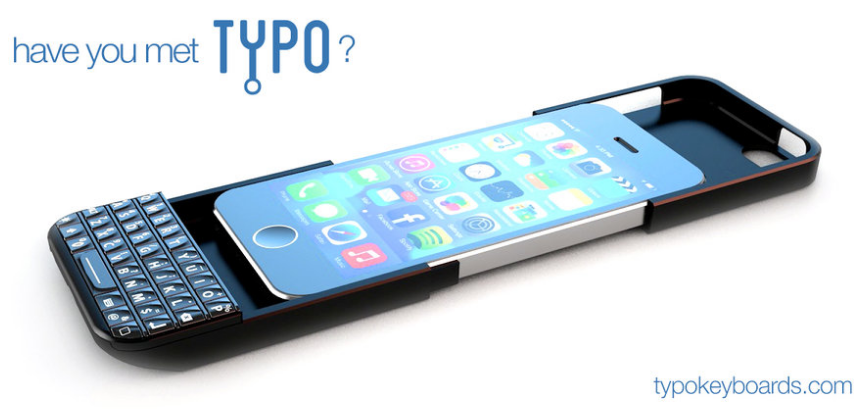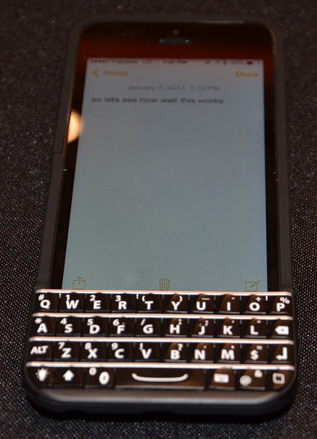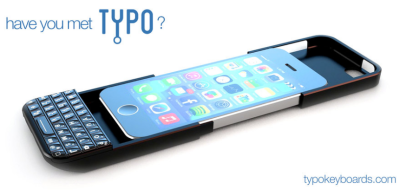
During our 2014 International CES coverage, we told you a little bit about the Typo Keyboard. In a nutshell, the Typo Keyboard – backed by none other than Ryan Seacrest – gives users a thumb-style physical keyboard for the iPhone 5 and 5S. The Typo Keyboard provides an extremely user-friendly, tactile keyboard.
 Though the Typo case bears a striking resemblance to the BlackBerry keyboards of yore, Laurence Hallier – the designer of the case – told us in an interview at CES that they had been working on this design for more than 18 months and made sure several times that they were not violating Blackberry’s patents. Nevertheless, on 24 January 2014, BlackBerry filed a motion to block the sale and production of Typo Cases. According to CIO:
Though the Typo case bears a striking resemblance to the BlackBerry keyboards of yore, Laurence Hallier – the designer of the case – told us in an interview at CES that they had been working on this design for more than 18 months and made sure several times that they were not violating Blackberry’s patents. Nevertheless, on 24 January 2014, BlackBerry filed a motion to block the sale and production of Typo Cases. According to CIO:
BlackBerry has asked a California court to block U.S. sales of the Typo keyboard, an add-on keyboard for the iPhone that BlackBerry says is an “obvious knock-off” of the keyboards on its phones…BlackBerry is asking the U.S. District Court for the Northern District of California to prohibit Typo from “making, using, offering to sell, or selling within the United States, or importing into the United States, the Typo Keyboard.”
Further, BlackBerry argued that the Typo Keyboard is a direct threat to their business:
“Typo’s blatant copying of BlackBerry’s keyboard presents an imminent threat of irreparable harm to BlackBerry, and that threat is magnified in combination with the significant market power of the iPhone.”
This is just the latest event in a long line of court proceedings which began on 3 January 2014, when BlackBerry filed a patent infringement lawsuit against Typo. The original lawsuit alleged that, “This [the Typo Case] is a blatant infringement against BlackBerry’s iconic keyboard, and we will vigorously protect our intellectual property against any company that attempts to copy our unique design.”
In response to BlackBerry’s move to block the sale and production of Typo cases, the company argued that BlackBerry’s claims, “lack merit and we intend to defend the case vigorously.” It will be interesting to follow this case. While BlackBerry can make an argument that the Typo is indeed similar, but from what we can gather from speaking to Hallier, Typo will indeed win the suit. If Hallier did indeed check the patents several times throughout the development, as he said, then there is no doubt that they will come out on top.

